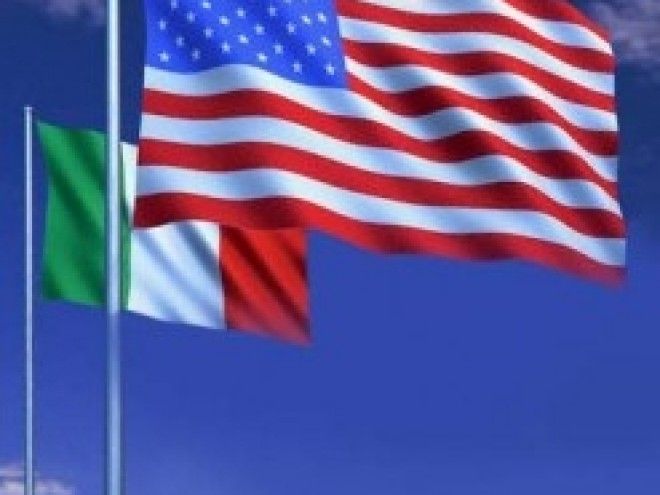
THE HUFFINGTONPOST: "ITALY AND THE U.S. TO BUILD A NEW PERSPECTIVE"

Published by The Huffington Post at
http://www.huffingtonpost.com/frank-sensenbrenner/italy-and-the-us-time-to-_b_2925741.html
Historically, the U.S. and Italy share close ties and a bond reinforced by the presence of a significant Italian-American community in the U.S. After WWII, Italy has been a faithful ally of the U.S. Today, Italy may be more than a historical friend for the U.S.: In the current scenario of a European Union that is struggling to find its new perspective, Italy -- more than others -- can be the partner for helping the U.S. in finding a consensus in Europe for a renovated era of transatlantic relations and for a new vision on economy and trade between the two sides of the ocean.
Why? In theory all the members of the European Union are U.S allies. Some, like the UK, have a 'special relationship' with the U.S. But there are significant differences amongst the main EU states, in particular about their policy towards European integration and the EU's future relations to the U.S. The UK has never been traditionally too supportive about the EU's transnational future and may eventually prefer a tighter transatlantic community. Germany, the strongest EU economy, does not seem to be willing to lead Europe towards new objectives, but, rather, would prefer a better design, and checks and balances for the current Union. France seems unlikely to welcome policies that heard to a closer Atlantic partnership, as its political role would be shrinking.
So, why Italy? Among the main eurozone economies (and the UK is not part of the eurozone), Italy is the third largest, but also traditionally closer to the U.S. and economically intertwined to Germany and France. Also, Italy is the only large EU member that may have interest into a future stronger bond between Europe and the U.S. To cope with its funding troubles (high spreads), Italy needs a more stable financial market, and a larger market for its goods would, in the long-term, neutralize many setbacks and limits of current EU/eurozone architecture. Only a clear, long-term perspective of a new strong economic area for the two sides of the Atlantic would give the benefit of credibility and stability.
But the establishment of a broad trade agreement, and eventually a single market or, in perspective, a real free trade zone, will hardly fly without some kind of currency agreement, as EU states will be afraid of the U.S. devaluing whilst they cannot do. At the eyes of the Europeans, the only alternative would be to allow ECB to manage monetary policy, which would pave the way to a possible risk of 'monetization' of public debts, which is anathema to Germany and the Northern EU states, as they would feel paying others' debts. All this may complicate trade negotiations, to the benefit of the Chinese, who continue to avoid a floating exchange rate.
The fear of currency wars may interfere in upcoming negotiations, but a credible vision for the future of transatlantic relations needs to consider the role of currencies. However, even though the free trade zone would clearly have benefits for the U.S., a renewed Bretton Woods-type agreement does not seem an attractive proposition.
This vision is again a very good reason for the U.S. to focus on Italy, and why Italians may really need the U.S. In fact, to make it possible to create a larger economic space between the two sides of the Atlantic, the U.S. would need first to support Europeans to find a path for the solution to their sovereign debt crisis. Rather than imagining other bailout agreements or debt relief actions, the best way -- also for a U.S. contribution -- to get out of the current swamp seems to create a new political (and economic) perspective for Europe, by which, as the stability of the design will be credibly ensured, market perception of sovereign risk will be contained. And Italy is the best possible ally on such an issue, as it is the country suffering more from current financial turmoil, given its high level of public debt.
The U.S. may be interested in a future of a larger transatlantic partnership, as it will be not only the mean to stabilize markets and to ensure economic growth perspectives (which need stability), but, also -- if this materializes as a solid, long lasting goal for all countries involved -- it will be the mean for the transatlantic world to be in condition to keep the global leadership that is now menaced by emerging economic powers.
Only a renewed global leadership of the Western countries will ensure that all achievements and values we consider given and acquired in our countries (but not yet in the rest of the world) can be maintained and widespread. The key for this may lie in a renewed perspective in Europe, for which the U.S. needs allies who share its same agenda and have the closer possible interests. Italy is this ally.
fonte: Italian Embassy in the USA
You may be interested
-
Italian auto supplier Brembo to build new U....
Italian brakes maker Brembo will build a new foundry in Michigan to expand its manufacturi...
-
'A small New York': Palm Beach to become home...
Miami-born and Italy-raised, jewelry designer and accomplished equestrian Lucrezia Buccell...
-
'Alessi 100-001' celebrates 100 years of Ales...
Iconic Italian design brand Alessi is celebrating its centennial with an exhibition titled...
-
'Be Italian' fa viaggiare l'America nell'Ital...
Conto alla rovescia per Be Italian, il nuovo salone organizzato da Lombardia Fiere dedicat...
-
'Call Me By Your Name' director Luca Guadagni...
Filmmaker Luca Guadagnino revealed in a recent interview that he has no immediate plans to...
-
'Entire' Italy spirits sector at risk from US...
The "entire" Italy spirits and liqueurs sector is at risk from US tariffs, wine and spirit...
-
'Lamborghini: 60 Years' Looks Back at the Bra...
Veteran British automotive journalist, and author, Stuart Codling has been covering the wo...
-
'Mammalucchi': The Venetian pastry delicacy c...
Lovers of the Venice Carnival know it means masks and costumes, but also tasty delicacies...










